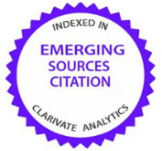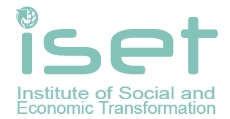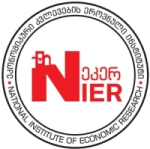Economic and environmental aspects of organization the territory of ecologically clean agricultural land
Abstract
Introduction. The foundation of the creation of ecologically clean land masses is the economic organization of the territory. The leading component of ecologically safe land use is the need to determine the suitability of land soils for the cultivation of raion crops and the maintenance of maximum soil quality adapted to the quality of crop rotation.
Aim and tasks. In the article the purpose of planning the organization of land mass structures is determined. The task of the internal land management is to formulate a strategy for using land masses that would maximally focus on the actions of land users in optimizing, transforming and using land to the natural conditions of the region.
Research results. Measures to create ecologically pure land masses are carried out directly at agricultural enterprises, therefore, agricultural land use is a prerequisite for them. The organization of agricultural land use envisages for business entities, the establishment of a warehouse, the transformation of lands and conservation of degraded and low productivity land, which at the present stage has become the most effective factor in the environmental optimization of land use. Agroecological organization of the territory includes measures on four systemic properties of agroecosystems: productivity, stability, stability and uniformity. All four properties are interrelated in agroecosystems. Without these links it is impossible to organize the territory in order to create conditions for rational use and protection of land, which is demanded by the agricultural land management system.
Conclusion. In the article the necessity of characterization of qualitative and quantitative characteristics of lands is grounded in order to find out the influence of the creation of the land mass and the appearance of possible dangers. The basic stages of the transition to environmentally safe agriculture and the formation of ecologically clean land masses have been determined. The types of development of the land mass are described: one-time and step-by-step. The complex problems that may be encountered by an enterprise of any ownership type in the transition to the maintenance of ecologically pure agriculture are determined. Creation of ecologically pure massifs of lands and agroecological organization of the territory includes a system of measures for the adaptation of agricultural production, agriculture to the peculiarities of the natural environment, along with the system of levers of state management of rational ecologically safe use of agricultural land. So the necessity of state support and motivation for enterprises planning to switch to the production of ecologically clean products and the formation of ecologically clean land masses has been substantiated.
Keywords:
ecologically clean land, land masses, natural environment, agroecological organization, enterprise, ecologically pure massifsReferences
2. Antipov, A.N., & Semenov, YU.M. (2006) Ecologically orientated planirovanie land use in Prikailie. Irkutsk. 5, 23 [in Russian].
3. The Land Code of Ukraine: Law on 25.10.2001 No. 2768-III (2002). News of the Verkhovna Rada of Ukraine, 3,27 [in Ukrainian].
4. Sokhnich, A.Ya., & Kolodiy, P.P. (2005) State control over the use and protection of land: teaching. Manual. Lviv, Ukrainian Technology Technology Foundation, 81, 140. [in Ukrainian].
5. Bondar, O.I., Timchenko, O.I., & Tararico O.G. (2006). Anthropogenic factors of the environment and their influence on biota and human health: a textbook. Interest, 288 [in Ukrainian].
6. Organic Products Regulations (2009). Minister of Justice at the following address. Retrived from: http://laws-lois.justice.gc.ca
7. Martiienko, А.І. (2011). The theoretical basis of property relations on natural resources. Оdesa: Instytut problem rynku ta ekonomiko-ekolohichnykh doslidzhen NAN Ukrainy [in Ukrainian]
8. Kupiniets, L.Ye., (2010). Ecologization of the food complex: theory, methodology, mechanisms. Odesa: Izd-vo IPREEI NAN Ukrainy, 720 [in Russian]
9. Krynytska, O.O. (2015). Institutional support for the development of land relations of Ukraine. Candidate’s thesis. Odesa, [in Ukrainian]
10. Oliinyk, O.R. (2014). International experience of stimulating the development of organic production and its use in domestic practice. Innovative economy, 195-201 [in Ukrainian]
11. Kupiniets, L.Ye., & Tiutiunnyk, H.O. (2017). The quality of soils in the system of agricultural economic management. Economic innovation, 63, 116-125 [in Ukrainian].

This work is licensed under a Creative Commons Attribution-NonCommercial 4.0 International License.
If the article is accepted for publication in the journal «Economics. Ecology. Socium» the author must sign an agreementon transfer of copyright. The agreement is sent to the postal (original) or e-mail address (scanned copy) of the journal editions.






















